Category: Features
-
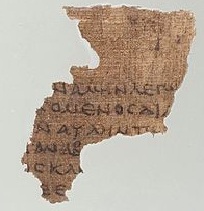
New Testament Sunday School Lesson 45: Revelation
As with other Sunday School lesson notes, these are intended primarily to help people study for the lesson, not as lesson preparation materials. Of course, anything one uses for study can also be used to help one prepare a lesson. But study rather than lesson preparation is the main purpose of these notes. Background The…
-
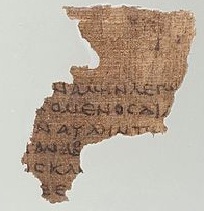
New Testament Sunday School Lesson 44: 1-3 John
1-3 John seem to be letters written to different churches in the region of Ephesus mostly in response to a group of apostates whom we call Gnostics. Most scholars believe that John wrote these letters before he wrote the Gospel of John, though that is not a unanimous opinion. There are, for example, some who…
-
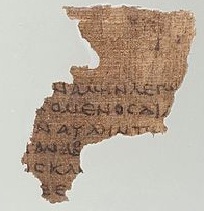
New Testament Sunday School Lesson 43: 1-2 Peter, Jude
Before you read the letters from Peter, take a few minutes to recall who he was: What was his position in the Church? What particular experiences did he have with the Savior? What might he have learned from those experiences? How does that background inform these letters? Outlines of 1 Peter, 2 Peter, and Jude…
-
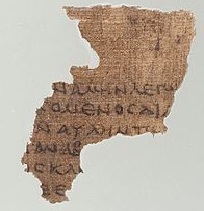
NT Sunday School Lesson 42: James
We do not know who the author of this epistle was (there are several persons named James in the New Testament), but tradition says that it was James, the brother of Christ and the presiding elder in Jerusalem after Christ’s death. (See, for example, Acts 15:13, where he presides over the Jerusalem conference called to…
-
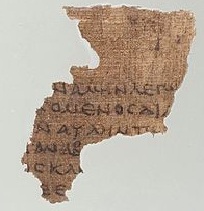
NT Sunday School Lesson 41: 1 and 2 Timothy; Titus
1 Timothy 3 3:15-16: How is the Church “the pillar and ground of truth”? What metaphor is Paul using? How does that metaphor help us understand what the Church does? What does he mean when he speaks of “the house of God”? Does he mean the church as a whole or individual congregations? What does…
-

NT Sunday School Lesson 40: Philippians, Colossians, Philemon
There is even more to cover than usual in this lesson. The result is 12 pages of study material. Because it usually helps to understand the context in which the verses one studies occur, I will supply some background information about each book, as well as an outline of the text of each. Then I…
-
Homeschooling Then and Now
As was mentioned in my introduction a week or so ago, my parents homeschooled us “back in the good old days when homeschooling was weird and subversive, not hip and progressive.” I’m now homeschooling my own children, and it’s interesting to note how the movement has evolved during the past 25 years. My adjectives describing…
-
Elder Cook and Theodicy
My last year at BYU, I sat through an Elders Quorum lesson where the teacher discussed the etymology of “atonement.” I was skeptical that it actually derived from “at-one-ment,” and, immediately after church ended, I walked across campus to the Writing Center, keyed in my code, and pulled out the Center’s OED.[fn1] And, to my…
-
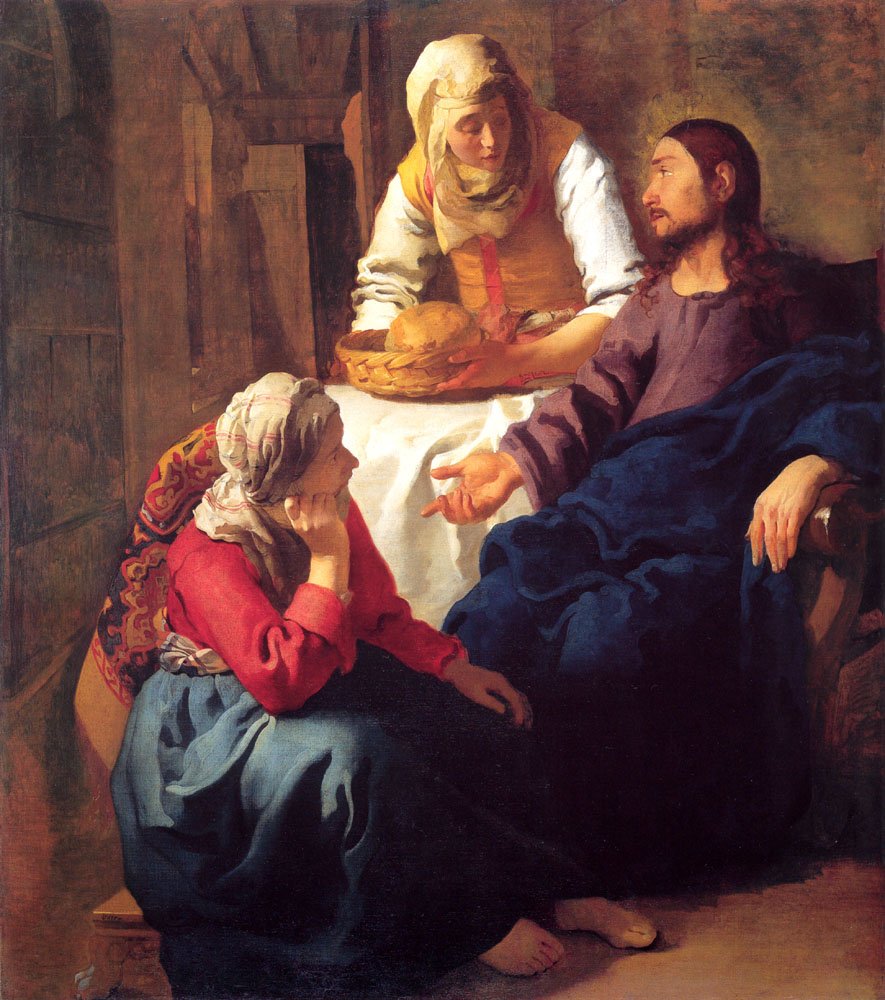
Sister Beck and Daughters in My Kingdom
Having spent the past eight months in Tunisia, where our tiny L.D.S. group had very little formal structure, I had almost forgotten what it was like to go to a Church meeting without husband and children in tow. Attending the General Relief Society Meeting with a few friends was like a welcome home. I had…
-

New Testament Sunday School Lesson 39: Ephesians
For a variety of reasons most New Testament scholars do not believe that this book was ever an actual letter written to a specific Christian congregation in Ephesus. For one thing, the words “to the Ephesians” in verse 1 is not part of the best manuscripts. Instead of a letter, it appears to be a…
-
Mormons Do Care about the Earth
Mormons do care about the earth. We care about preserving, protecting, and maintaining it. We care about the earth because 1) We love God, 2) We care about other people, and 3) We believe in the intrinsic value of the earth.
-
Charity Unbidden
Saturday night, several talks of the General Relief Society Broadcast addressed charity. I was left with the general impression that we should want to cultivate feelings of charity towards others, and that as we desire to have charity, we will gain it. I carry a sketch book and pencils with me. An adult only church…
-

New Testament Sunday School Lesson 38: Acts 21-28
I will focus these study notes on Acts 21:1-Acts 23:11. As you read this story of Paul, notice that the Church of his time has spread to many communities. Paul is able to move from place to place, at least in the general area of Palestine and parts of Asia Minor (now western Turkey), and…
-
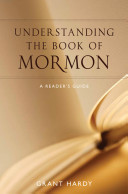
12 Questions with Grant Hardy – part II
Here is the conclusion of Times & Seasons look at Grant Hardy’s new book Understanding the Book of Mormon, and the second half of our 12 Questions interview:
-

12 Questions with Grant Hardy – part I
To cap off our roundtable review of Grant Hardy’s new book Understanding the Book of Mormon we’re fortunate to feature an interview with the book’s author. The interview will be posted in two parts. Our thanks to all who have participated, and especially Bro. Hardy.
-
Books of Interest to the LDS Nerd
A few of these are forthcoming, a few have appeared recently. I am compelled to read them all, as soon as I can get to them. Now Available Charles Harrel,“This Is My Doctrine”: The Development of Mormon Theology (Kofford Books) “In this first-of-its-kind comprehensive treatment of the development of Mormon theology, Charles Harrell traces the…
-
H2 Chapter 5 Part 1: Missionary Work and Convert Retention
While to some it may seem like “the work of salvation” is about missionary work, the Church takes a much broader view. In this chapter of Handbook 2, the work of salvation is defined as including “member missionary work, convert retention, activation of less-active members, temple and family history work, and teaching the gospel.” Clearly…
-

NT Sunday School Lesson 37: Hebrews
The book of Hebrews is what scholars call a “homiletic midrash” on Psalms 110, meaning that it a sermon responding to Psalm 110. It might be useful to read that psalm before reading Hebrews and to keep it in mind as you read Hebrews. Most contemporary scholars, including some LDS scholars, do not believe that…
-

NT Sunday School Lesson 36: Romans
I have to confess that Romans is perhaps my favorite book of scripture. Given the way that most Latter-day Saints think of Romans, that marks me as at least strange, if not perverse. It also means that I will have to restrain myself to keep the notes for this lesson to a reasonable length. To…
-
Times & Seasons Welcomes Ben Spackman
Times and Seasons is pleased to welcome Ben Spackman as our latest guest blogger. Ben received his BA in Near Eastern Studies from BYU and an MA in Near Eastern Languages and Civilizations from the University of Chicago, focusing on philology and Semitic languages such as Arabic, Hebrew, and Aramaic. During his graduate summers, he…
-

NT Sunday School Lesson 35: 2 Corinthians
Background 1 and 2 Corinthians are two of perhaps four letters that Paul wrote to the saints in Corinth. The first letter (referred to in 1 Corinthians 5:9-13) has not been preserved. 1 Corinthians is the second letter, written partially in response to reports of problems in Corinth and partially in response to questions that…
-

NT Sunday School Lesson 34: 1 Corinthians 11-16
Every so often I insert this reminder: These are study notes, not notes for a lesson. Of course, studying the chapter can help one prepare for the lesson, and the same questions used for study can be used to teach a lesson. But the primary purpose of these notes is to help people think about…
-
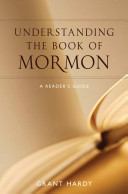
Grant Hardy and Personal Scripture Study
Every semester, one of my principal goals in my tax classes is to get my students to engage with the Internal Revenue Code. And it’s harder than you might think: often they don’t read the Code itself, focusing instead on the explanations in their casebook.[fn1] And their aversion to reading the Code is completely understandable:…
-
An Unsettling Book: Grant Hardy’s Understanding the Book of Mormon
This is the fourth in a series of reviews of Grant Hardy’s Understanding the Book of Mormon: A Reader’s Guide (OUP, 2010) that we are posting this week at Times and Seasons. It says something about the book that there is still a lot to talk about.
-
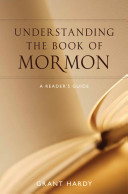
Bootstrapping a Book of Mormon Readership
Compare this classic statement of Richard Bushman, meant to encapsulate his own efforts as part of the New Mormon History movement: As more and more historians work to situate Mormonism in American history, Mormons like me want to join the discussion. We will write better if we are less defensive, more open to criticism, more…
-
Grant Hardy’s Subject Problem
Criticisms of the Book of Mormon generally fall into one of two categories: objections to its historical claims on the one hand, and on the other critiques of its literary style. The two prongs are often combined in a single attack, for instance in the suggestion that the awkward style of the book reflects the…
-
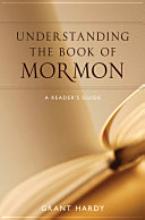
Grant Hardy Week at Times & Seasons
Times and Seasons is excited this week to present to you a roundtable series review of Grant Hardy’s recent book Understanding the Book of Mormon: A Reader’s Guide (Oxford 2010). The upcoming posts will not only acquaint you with book itself, but also provide our opinionated responses, and of course, allow you all to join…
-

NT Sunday School Lesson 33: 1 Corinthians 1-6
Some background on 1 Corinthians (in addition to that given in the Bible Dictionary): The church at Corinth was founded by Paul in 51 A.D, and this letter was probably written in the early spring of 57. Corinth had a reputation for debauchery in the ancient world, and that in a world that was tolerant…
-
Handbook 2, Chapter 4: Ward Council
In the last post on the Handbook, I noted that Church leadership seems to me to have emphasized collaborative leadership in recent decades. For the issues that face most Church members on a weekly basis, the Ward Council is where that collaborative leadership actually happens.
